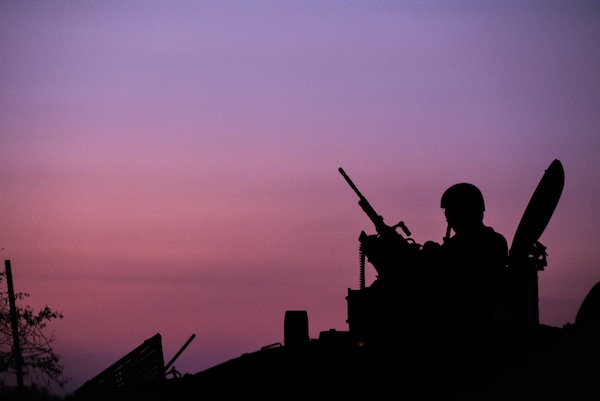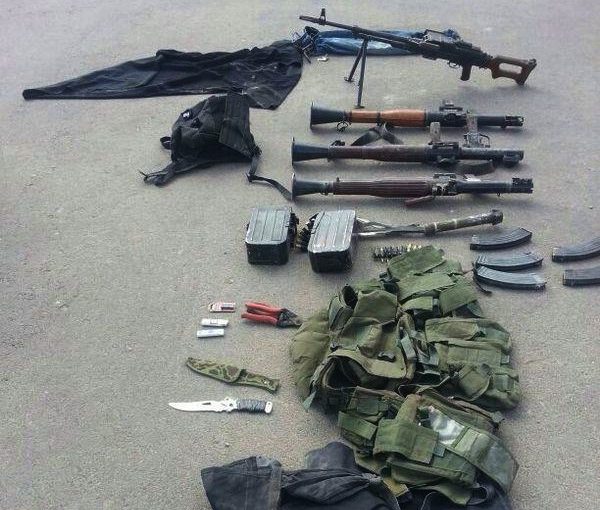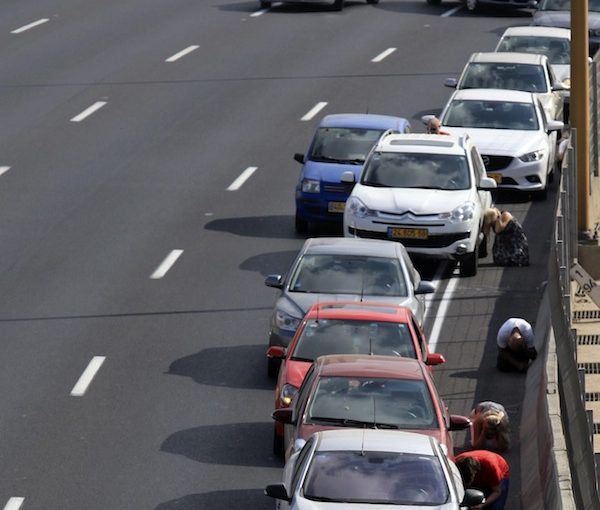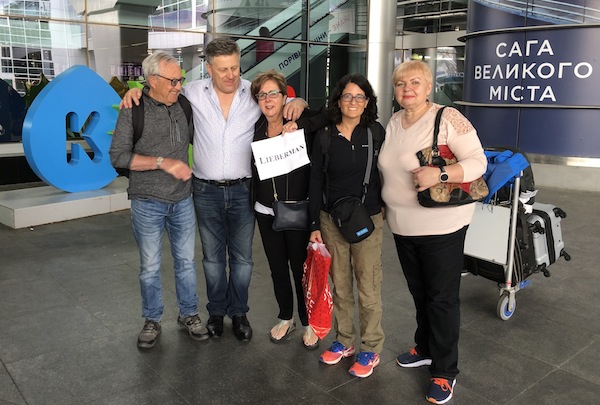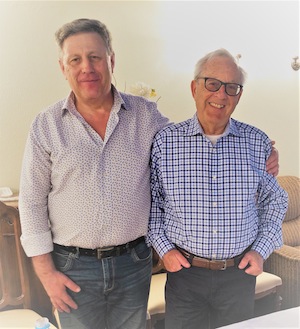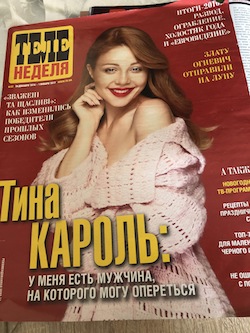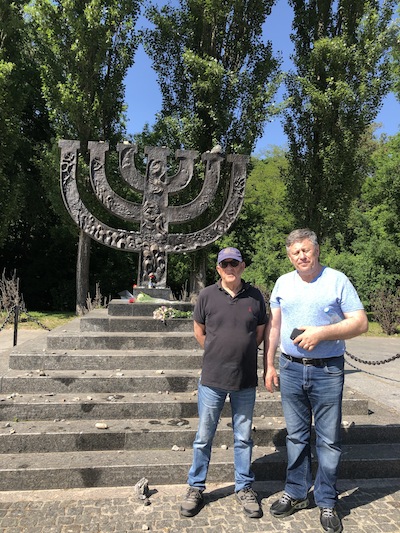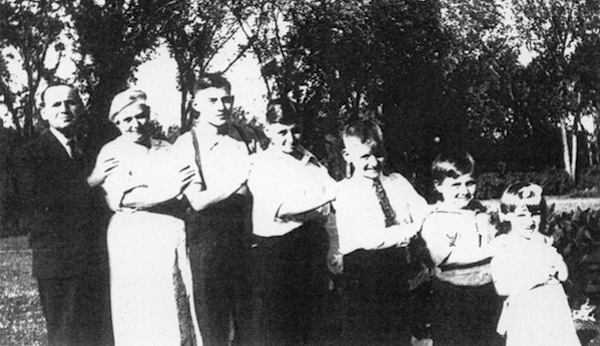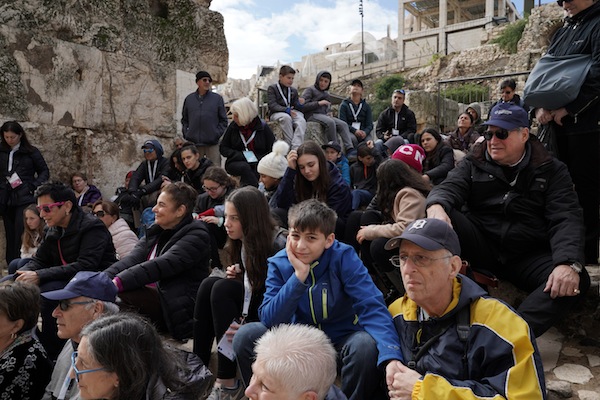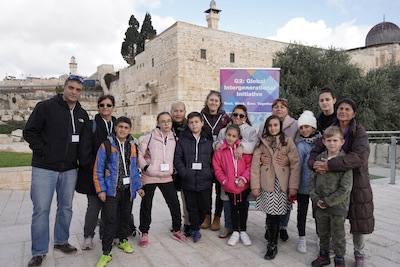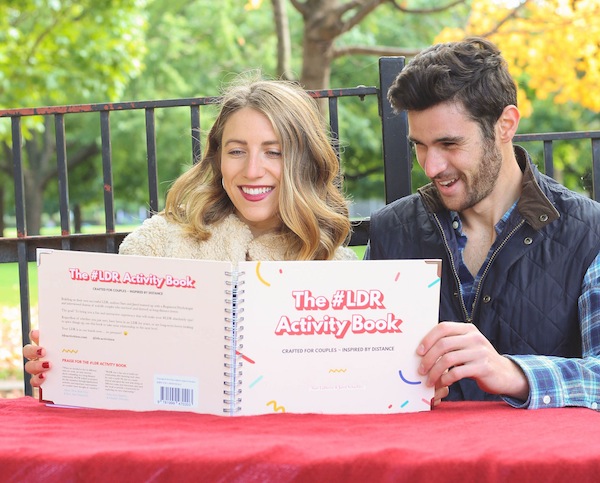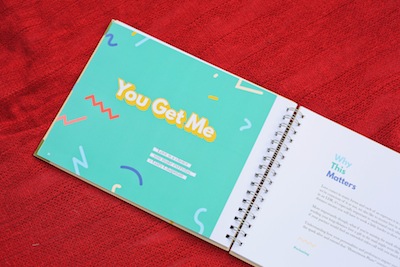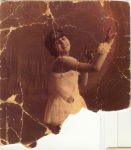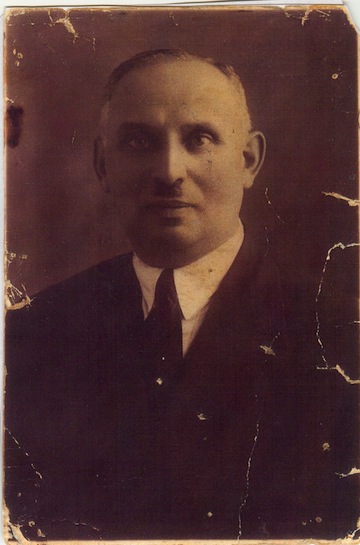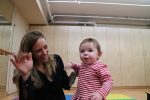Operation Protective Edge, on Aug. 3, 2014. (photo from flickr.com/photos/idfonline)
Part 3 of a three-part series, in which the author shares his diaries from the homefront, providing a glimpse of daily life under missile threat during Operation Protective Edge in 2014. For Part 1, click here; for Part 2, click here.
July 23
Day 16. Iron Dome success rate at 90%. Missiles still get through. Today, an errant rocket hit a house. No casualties. This prompted yet again another lecture from Dad to his kids. Don’t be over-confident and continue taking the Code Red alerts seriously.
Six hundred and sixteen dead in Gaza. Mostly civilians. Locked in a war zone. A human catastrophe. Simply put, as American Civil War general William Sherman put it, “War is hell.”
Hamas fighters seen emerging from their hideout in an ambulance. Balancing war aims with the desire to avoid collateral damage, the Israel Defence Forces decided against bombing the ambulance.
More missile action in Rehovot. Spoke with our son while huddled in our protective room. He was out with friends at a nearby café. They talked with us from under a table.
July 28
Huge uncertainty. Again that word. Shuffling from ceasefire to ceasefire. Meantime, my Code Red app doesn’t stop beeping.
What is sure? The death and devastation in Gaza is tragic. The continued threat to Israel from Hamas’s missiles and terror tunnels is unacceptable. Two ends of a very sharp sword that Hamas must sheathe to bring quiet.
Israel cannot rest until the Hamas threat is eradicated. Or at least severely beaten. In the past 12 months, more than 200 missiles have been fired at our southern communities. Another 200 rockets were fired at the same communities in the 10 days leading to our military offensive. Since the start of Operation Protective Edge, a staggering 2,500 rockets fired at Israel. Yikes!
Exceptionally telling was a picture in our morning paper. Israeli soldiers carrying a wounded bomb-sniffing dog in a stretcher to a waiting helicopter. Contrast to Hamas terrorists firing from behind women and children.
Returning from Tel Aviv with my wife and daughter, a Code Red sounded. A known routine. Pull over. Exit car. Crouch down on roadside. Cover heads with hands (!). My wife huddled over our daughter and I huddled over my wife. Double protection for my daughter. Unbeknownst to my daughter, while the Iron Dome chased and intercepted its target overhead, I managed a quick and loving grope of my wife. Nothing like some comic relief. Another Love Is moment.
July 31
Driving home from work as a missile barrage hit the south. Three people lightly injured by falling missile fragments. Text messages from my loving family:
Wife: “Where’s Dad?”
Son: “Think he’s at work. Tough luck for him – ha ha!”
My son inherited my dark and cynical sense of humour.
A country at war: 65,000 reservists now called up; 18,000 pending call-ups. Flags strung up along our main roads. War jingles on the radio. Billboards supporting our troops. Famous Israeli singers touring the front (which is one city over!). Patriotic teenagers waving flags and dancing at major intersections.
Nonstop beeping of the Code Red app. Heard everywhere. Movie theatres. Restaurants. Grocery stores.
Soldiers’ funerals attended by hundreds.
Solidarity with impacted businesses in the south, holding market days in major cities. Large public service campaign to buy “blue and white.”
Aug. 2
Sixty-three of our bravest boys killed. Three civilians killed. One soldier, Hadar Goldin, captured. Dead or alive?
U.S. President Barack Obama asked Hamas – one of the most barbaric terrorist movements in the world, who flagrantly have violated six humanitarian ceasefires, who hide behind innocent women and children, who plant arsenals and war rooms in hospitals, schools and mosques – to please set the soldier free. Pretty please. With sugar on top. Don’t think the president gets it.
Aug. 5
Three times I told my son to get up for work. Each time, he mumbled OK. Each time, he fell back asleep. Then, running to our safe room at 7:15 a.m. with Code Red apps blaring, he finally got out of bed.
Leaving home this morning, I told my daughter that today should be relatively quiet. Entering another ceasefire. “Ya, like Hamas will respect that,” my 12-year-old quipped.
A tough day yesterday. More than 85 rockets rained on Israel. Terror attacks in Jerusalem. Terror alerts in Tel Aviv. Entering a 72-hour truce, which will hopefully usher in … something.
Preparing for the inevitable “day after.” Fists clenched. Hearts palpitating. Brow sweating.
Aug. 6
Halfway into the truce. So far, quiet met with quiet. Yesterday, I woke to the sounds of missiles and my Code Rep buzzing. Today, I woke to the sounds of silence – well, actually, to the sounds of my kids arguing and my dog barking. Beautiful noise.
There’s an atmosphere of victory. Our soldiers – our children – are heroes. Hamas was dealt a severe and long-term blow. Is more isolated in the Arab world. Some strategic shifts in alliances per the dictum “My enemy’s enemy is my friend.”
Will not forget those who fell in our defence, as well as the few civilian casualties. Saddened by the death and destruction in Gaza. Pray that one day soon Gazans will rise above Hamas, save themselves.
Hope our enemies are deterred from other misadventures. Pray that peace will be upon us. Am Yisrael chai.
Aug. 11
A bit premature with my last entry. Suffering from wishful thinking. Looks like victory has not yet arrived. While Hamas took a severe beating and is largely isolated, they continue their disregard for a real truce.
Both sides met in Egypt to negotiate a settlement while the ceasefire took effect, but huge gaps. Not surprisingly, talks broke down. Hamas resumed their missile barrage. Israel reactivated our air defences and continues to pound Gaza.
International condemnation of Israel totally disproportionate. Fierce anti-Israel and antisemitic rallies throughout the world, especially in Europe. Jews surrounded in synagogues (France). Jew-free areas (United Kingdom). A rabbi killed on his way to synagogue (United States). Jewish kids bullied in schools (Australia).
Still feel safer in Israel than in Europe. Even now. Think the mass immigration of Arabs to European lands and poor absorption processes taking effect.
Going to Italy next week for a family vacation. Need to minimize our “Israeliness.” English will be our language of choice. A bit scary.
Amid a second three-day truce, am doubtful the truce will last.
Aug. 13
The truce ends at midnight. Lots of anxiety. What comes next?
Didn’t Netanyahu once say he would never negotiate with terrorists? The world looks different at the top, when the decision is yours.
Am working late tonight. If the truce ends early, I hope it lasts at least till I get home.
Aug. 17
Waiting on the outcome of an extended ceasefire. Expires midnight Monday.
The solid backing and relative discipline Netanyahu enjoyed from the government is starting to crack. Lots of conflicting postwar opinions, positions and plans. Two Jews, three opinions.
Heading to Italy for our long-awaited family respite.
Aug. 26
Back from Italy. Fiftieth day of Operation Protective Edge.
While away, we tried, as best we could, to unwind from the tensions of our little shtetl. You can never really escape the reality of your country being hit by missiles. Especially with the Code Red app going off when eating pizza in a town square, when visiting the Coliseum, when at the Vatican, when touring the medieval hamlets of Tuscany. Could have just turned off the app but, for a sense of identity, some twisted need to remain connected, didn’t.
After 50 days, Gaza is burning. Death and devastation are immense. But Hamas – like that Duracell rabbit – just keeps going.
In a Sisyphus-like manner, another ceasefire is in the making.
Israel is awash in the ALS Ice Bucket Challenge. Escapism of any kind, however temporary.
Aug. 29
Waited a few days before writing this entry. Wanted to be sure this ceasefire held. It has. But gaps remain wide. Hamas remains a wild card.
Discussions in Israel are intense. Significant introspection. If Netanyahu thought the Gaza battlefield was tough, here comes the national post-mortem. This soul-searching (self-flagellation?) is indicative of the Israeli psyche, our democracy. This constant search inwards may be the secret to our success as a people, as a country.
A contrast to the other side. Celebrating their “victory.” Dancing in the streets. Shooting in the air. Proclamations of battles won that never happened. A lack of critical introspection that will, unfortunately, keep our enemies from making any real progress in developing a strong, forward-looking society.
Former National Security Council head Ya’acov Amidror: “One of the main differences between Israeli and Palestinian societies is that, if Israel has a glass of water three-quarters full, it will complain about and search for the missing quarter. If the Palestinian glass is only one-quarter full, it will celebrate the one quarter and even imagine a second quarter.”
What was? What will be? I defer to our pundits and leaders. To hopefully bring, if not peace, at least quiet to this wonderful, ever-challenged, always robust, constantly developing and very happy country.
May peace be upon us. As-salumu alayna. Shalom.
Bruce Brown, a Canadian-Israeli, made aliyah 25 years ago. He works in high-tech and is happily married, with two kids. He is the winner of a 2019 American Jewish Press Association Simon Rockower Award for excellence in Jewish writing.

